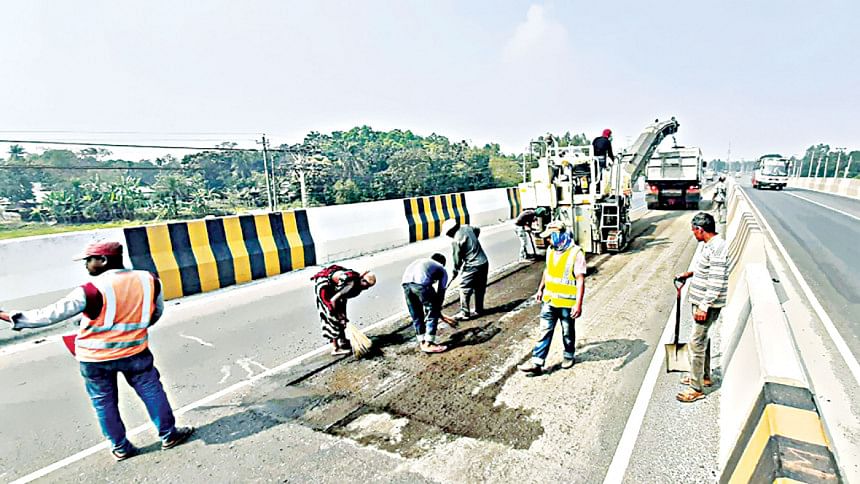How can project delays be avoided?

It is really embarrassing, for those who care, how time and cost overruns have become a near-routine affair in government projects undertaken in Bangladesh. The most recent example of this can be seen in the Roads and Highways Department (RHD) projects. While the RHD has claimed that 44 of its ongoing projects will reach completion by this fiscal year, documents have revealed that only three of them would actually end within their original deadlines. The majority of the other 41 projects missed their initial deadlines more than two years ago, with some delayed by three to four years.
Among the various government departments and ministries, the RHD has become notorious for regularly failing to complete projects on time and within the initial cost estimate. An evaluation report by the Implementation Monitoring and Evaluation Division on 49 projects, completed in FY 2016-17, shows that 41 of them saw both time extensions and cost escalations. This just goes to show the persistent weaknesses of the RHD in implementing such work. Unfortunately, the higher authorities seem unconcerned by how much public resources get wasted as a result, or how long the people are denied benefits that they would have gotten had those projects been finished successfully.
Despite the media harping on this issue ad nauseam, nothing seems to change. The prime minister, frustrated by this situation, had clearly directed public officials in 2020 to bring an end to this practice. Last year, having seen no improvement, she directed the authorities to take legal action against those responsible for flawed project designs that ultimately push up costs. Yet, almost no one has been held responsible for these delays. As a result, lack of proper feasibility studies and cost estimations, long postponements in tender process, and the tendency to divide project work in "small packages" (to benefit influential but non-professional contractors) still continue to stall project completion.
Does the PM's word not mean anything to the authorities? Does the endless suffering of people, or the constant wastage of their money, mean nothing? Are we to take this trend as a fait accompli? The RHD itself had proven, with a project undertaken in 2013, that completing a project on time while saving cost is possible. Then, why can't the RHD and other ministries repeat that?
We are once again forced to call upon the government high-ups and repeat to them how important it is to hold those responsible for these delays and consequent cost overruns to account. Unless these people and firms are given exemplary punishment, we fear that this unsavoury story will continue repeating itself again and again, causing immeasurable harm to our country's development potential.

 For all latest news, follow The Daily Star's Google News channel.
For all latest news, follow The Daily Star's Google News channel. 








Comments